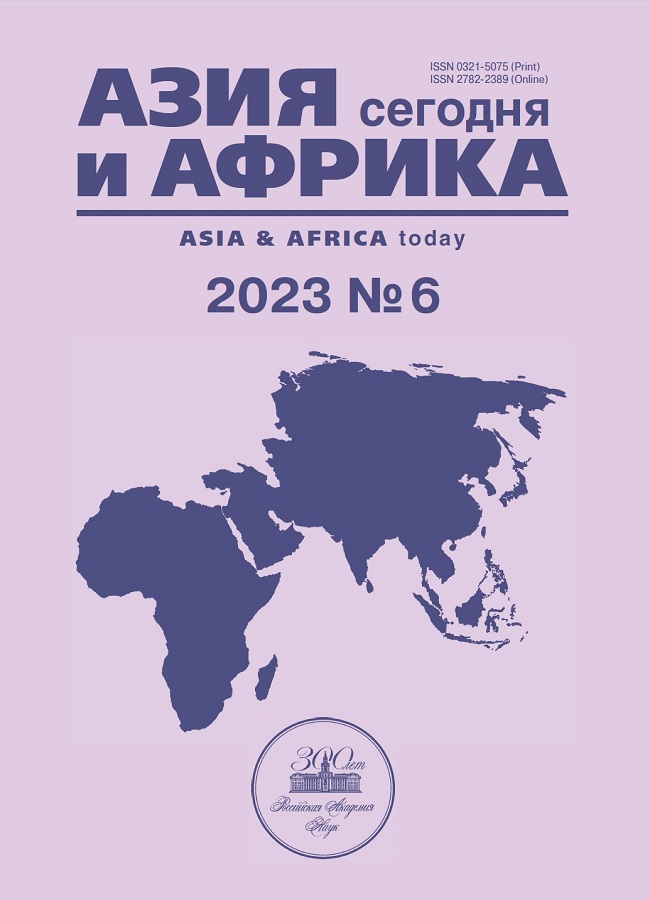Nº 6 (2023)
- Ano: 2023
- Artigos: 10
- URL: https://kld-journal.fedlab.ru/0321-5075/issue/view/10315
Edição completa
Politics, economics
Japan: Have Nuclear Arrows Moved?
Resumo
 5-11
5-11


Диалектика экономических реформ Н. Моди
Resumo
 12-20
12-20


Nigeria’s 2023 Election: A Change in Political Leadership
Resumo
 21-29
21-29


The Definitions with a Prefix ‘Narco-’, and a Real Conundrum in West Africa
Resumo
 30-38
30-38


Peacekeeping Mission UNIFIL: “Blue Helmets” in the South of Lebanon
Resumo
 39-45
39-45


Digital Economy of Northeastern Provinces of China: Modern Approaches to Regional Development
Resumo
 46-53
46-53


Regional Security and Threat Dynamics: Lake Chad Region in Perspective
Resumo
The Lake Chad (LC) region today is at crossroads, facing enormous security challenges from the Boko Haram / ISWAP insurgency with very important implications for regional stability. The largely unsecured borders of the region provide platforms for terrorist activities. Unarguably, cross-border security is a historical concern for the Lake Chad region countries.The authors attempt to explore the emerging regionalisation of (in) security and externality of threats around the Lake Chad region. Using the framework of Regional Security Complex Theory (RSCT), it conceptualises regional security within the trajectories of the threat in the region. RSCT provides a theoretical and conceptual framework for understanding the emergent structure and dynamics of regional security. The paper adopts the qualitative research method which offers an in-depth description and analysis of the regionalisation of security threats in the LC region.The paper unveils that despite a plethora of research on resurging threats of violent terrorism and the huge publicity of Boko Haram activities in the Lake Chad region, little is known within academia on the element of ethno-cultural and historical tendencies in regional security in the LC region. It thus posits that addressing the challenge of regional security, especially in the Lake Chad would require holistic approach that takes into consideration the ethno-cultural and historical ties and challenges of the region.
 54-61
54-61


The Arab Countries of the Persian Gulf as “New Donors” in the World Economy
Resumo
 62-69
62-69


Post-graduate tribune
The Trends in German Foreign Policy in African Countries
Resumo
 70-76
70-76


Book review
 77-81
77-81












